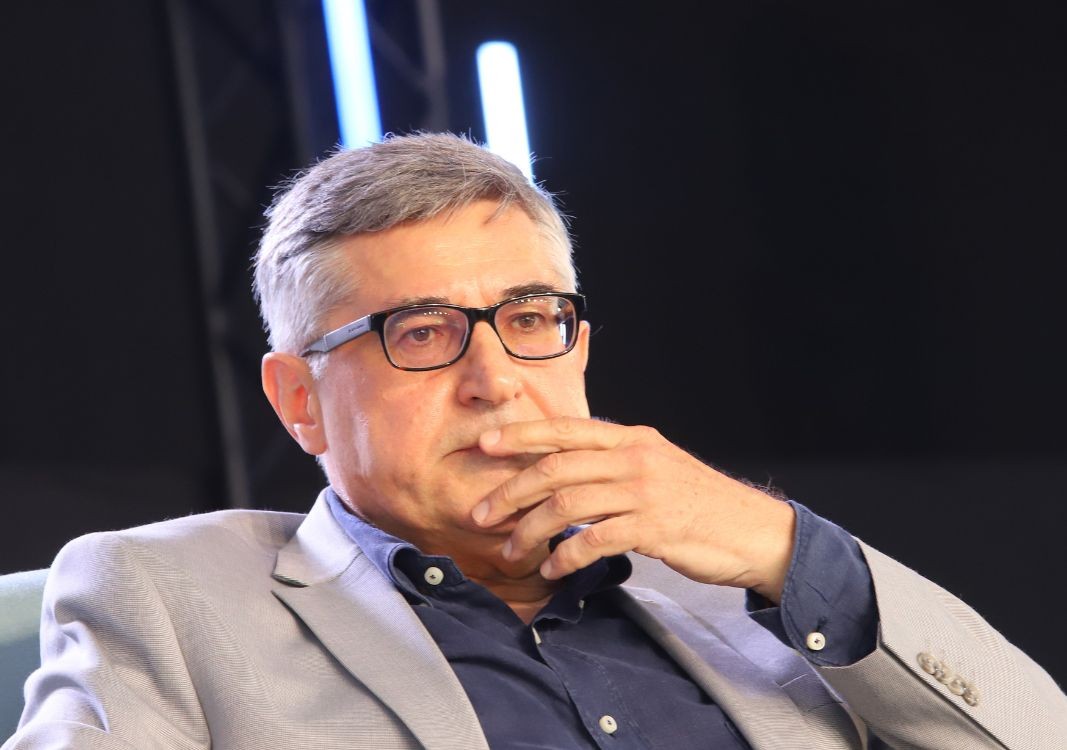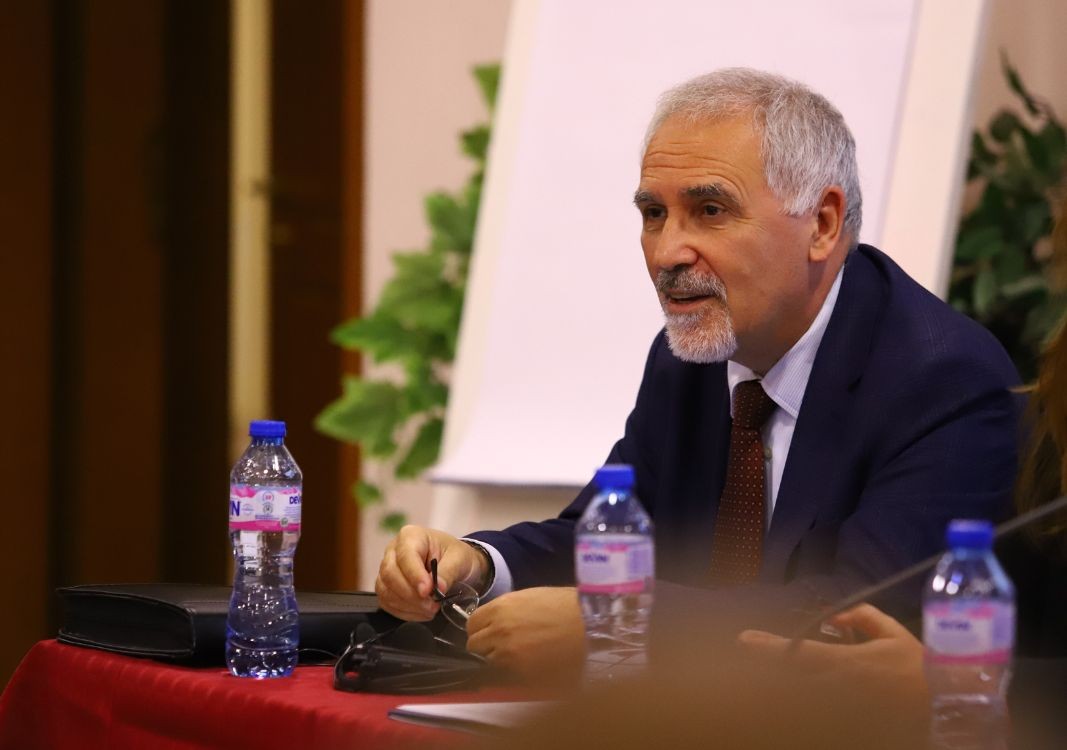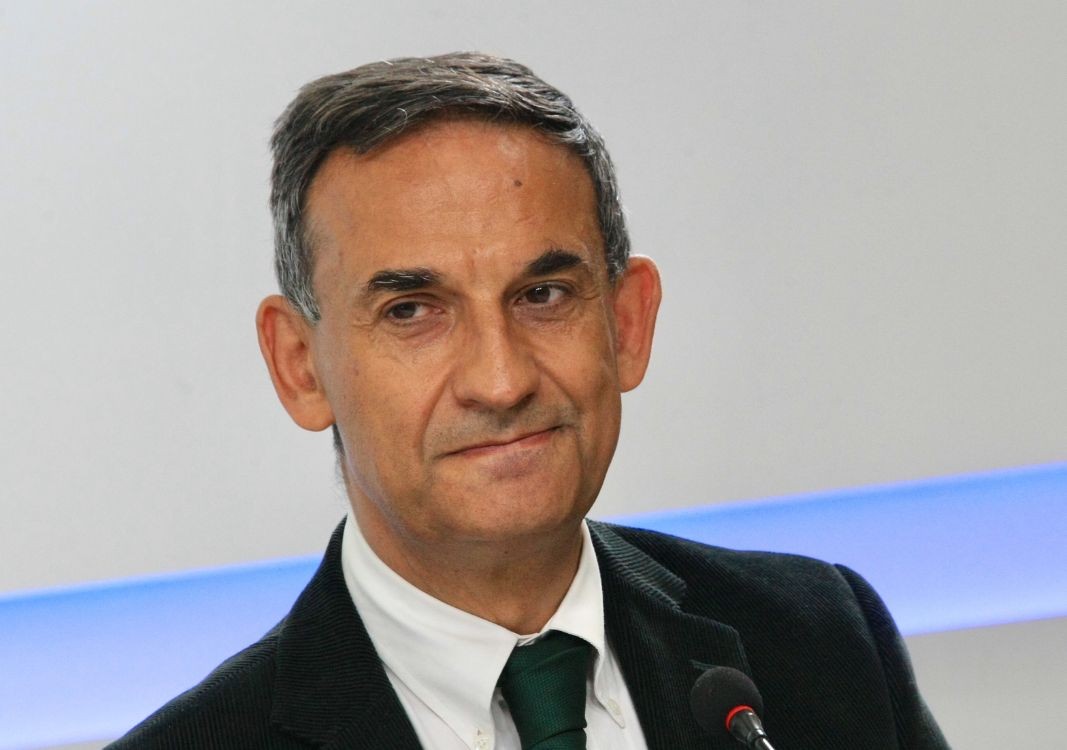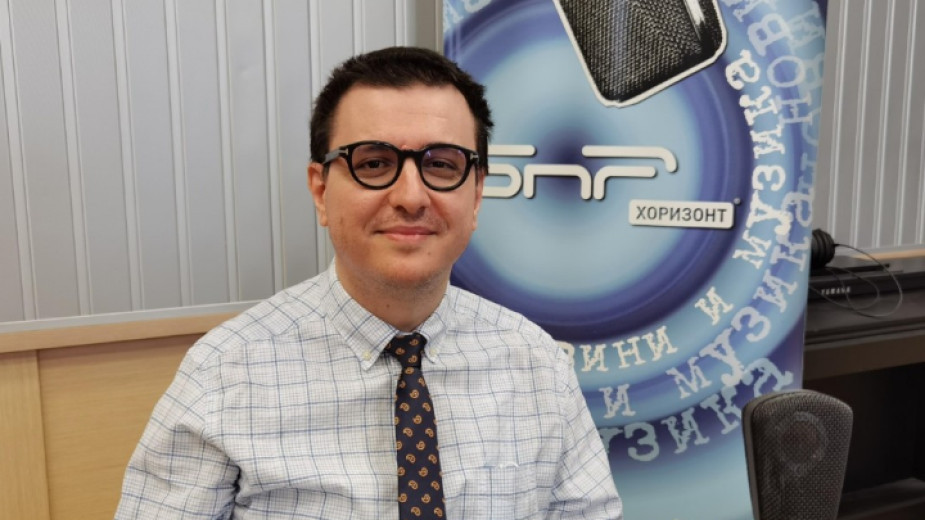The conflict in Ukraine was the focus of the annual conference of the Bulgarian Chief of Defense Admiral Emil Eftimov on 22 February. A year after the start of the war, in his words, the conflict "showed the importance and role of well-prepared, motivated, staffed and resource-provided formations that are able to react from the beginning of the crisis." Therefore, people in the army remain a key factor. Without trained personnel, modernization and adoption of new equipment are unthinkable," said Admiral Eftimov firmly. He assured the Bulgarian citizens that they can and should feel safe and protected by the Bulgarian army because "a lot of effort has been made in terms of situational awareness, the readiness of a number of duty forces has been increased, intelligence, surveillance and coordination with NATO's Joint Operations Command has been enhanced".
The topic of the modernization of the Bulgarian armed forces was an occasion for President Rumen Radev to criticize politicians for their attitude towards the Bulgarian army against the backdrop of a deteriorating security environment:

"One of the great challenges facing our armed forces - the lack of understanding and consensus in the political class about the real role and vision for the development of the armed forces. It is unacceptable in this extremely complex security environment that a significant number of political parties view our armed forces not as a guarantor of the territorial integrity and security of the country, but as a donor for the armed forces of Ukraine."
Security on the continent faces an even greater challenge after the Russian President's speech to the Federal Assembly of Russia on February 21. Putin's proposed freezing of Russia's membership in the Strategic Offensive Weapons Treaty, known as New Start, prompted an immediate reaction from NATO Secretary General Jens Stoltenberg, who recalled that: “Over the last years Russia has violated and walked away from key arms control agreements. With today's decision on New START, the whole arms control architecture has been dismantled.”
According to the Bulgarian Caretaker Minister of Defense Dimitar Stoyanov, the conflict in Ukraine is escalating:

"I hope that it is not yet another threat made by Russia and a show of force by withdrawing from the last active nuclear arms limitation treaty. I hope that reason will prevail in this situation. Currently in the Ministry of Defense, we do not consider the use of nuclear weapons by the Russian side as a real possibility, but this is an indicator that we are moving towards an escalation of the conflict, and not towards its peaceful resolution.
The US and Russia possess 91% of humanity's nuclear arsenal. The New START treaty is important for the nuclear balance of the planet, Prof. Rumen Kanchev, expert in international relations and former deputy minister of defense, told the BNR.

"Perhaps Putin lost control of what he said. Withdrawing from this treaty opens the door to an uncontrolled increase in nuclear weapons, as during the Cold War period. It ended up with about 57,000 nuclear warheads deployed in both nuclear powers”.
The threat of a nuclear war is becoming relevant again, commented the diplomat Lyubomir Kyuchukov:

"This decision puts the threat of nuclear war back on the agenda, as it was in the summer of last year. Then, after bilateral contacts with the USA, this danger was removed. However, this did not remove the risks. The fact that the possible use of nuclear weapons has begun to be described with acceptable adjectives continues to sound alarming, because it testifies to the acceptance of the thesis about the permissibility of such a thing. The statement of the Russian president fits exactly into this logic."
According to Kyuchukov, the key to resolving the conflict between Russia and Ukraine outside the battlefield is probably held by China. In its strategy entitled "Global Security Initiative" and presented a few days ago, the Celestial Empire calls on all countries to strive for the maintenance of peace and security throughout the world and the promotion of global development and prosperity.

"China is very careful how it behaves in relation to this conflict”, the diplomat Stefan Tafrov says. “On the one hand, for Beijing, this conflict is profitable because it takes the West's attention away from other conflict points in the world, but it also holds to the principle of territorial sovereignty”.
"Putin's attempts to play the nuclear card annoy China. The country has no interest in such an escalation," Tafrov also commented to BNR
Political scientist Assoc. Prof. Iskren Ivanov expressed his concerns that there is a risk that the conflict between Russia and Ukraine will become latent.

"If it drags on, not only Russia, but also NATO will exhaust its strategic resources. This will require not just a change in NATO's overall strategies. Then the need for global rearmament will appear on the agenda, including in Europe. This means that we will be spending a lot more money on weapons, on security, on military industry.”
Prime Minister of North Macedonia: We will not give up on EU membership but we will not be kneeling down Assessing the first 100 days of his cabinet, North Macedonian Prime Minister Hristijan Mickoski reported that the..
Albania to start substantive EU accession negotiations on 15 October The EU's permanent representatives in Brussels have unanimously decided to open accession negotiations with Albania. The process will start on 15 October with an EU-Albania..
From today, 27 September, Bulgaria is once again in a 30-day election campaign. 28 parties and 11 coalitions have registered with the Central Election Commission to take part in the next early parliamentary elections, and 19 parties and 9 coalitions..
The members of parliament will continue their session at 10 AM on November 22, following yet another unsuccessful attempt to elect a Speaker of the..

+359 2 9336 661
